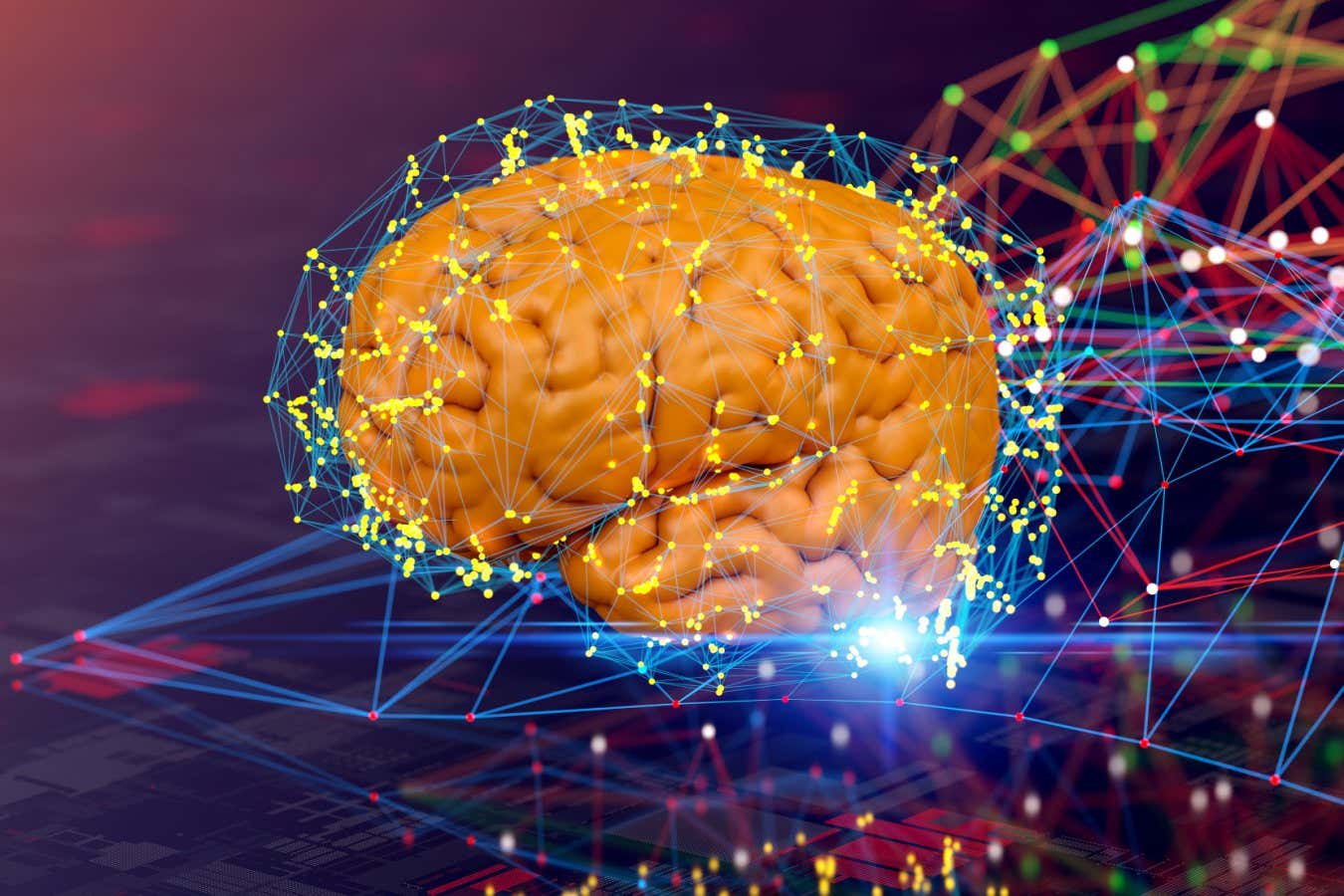A system that records the brain’s electrical activity through the scalp can turn thoughts into words with help from a large language model – but the results are far from perfect
By James Woodford
12 December 2023
An AI can decode brainwave recordings to predict the words someone is reading
Vertigo3d/Getty Images
Using only a sensor-filled helmet combined with artificial intelligence, a team of scientists has announced they can turn a person’s thoughts into written words.
In the study, participants read passages of text while wearing a cap that recorded electrical brain activity through their scalp. These electroencephalogram (EEG) recordings were then converted into text using an AI model called DeWave.
Chin-Teng Lin at the University of Technology Sydney (UTS), Australia, says the technology is non-invasive, relatively inexpensive and easily transportable.
Advertisement
While the system is far from perfect, with an accuracy of approximately 40 per cent, Lin says more recent data currently being peer-reviewed shows an improved accuracy exceeding 60 per cent.
In the study presented at the NeurIPS conference in New Orleans, Louisiana, participants read the sentences aloud, even though the DeWave program doesn’t use spoken words. However, in the team’s latest research, participants read the sentences silently.
Last year, a team led by Jerry Tang at the University of Texas at Austin reported a similar accuracy in converting thoughts to text, but MRI scans were used to interpret brain activity. Using EEG is more practical, as subjects don’t have to lie still inside a scanner.
